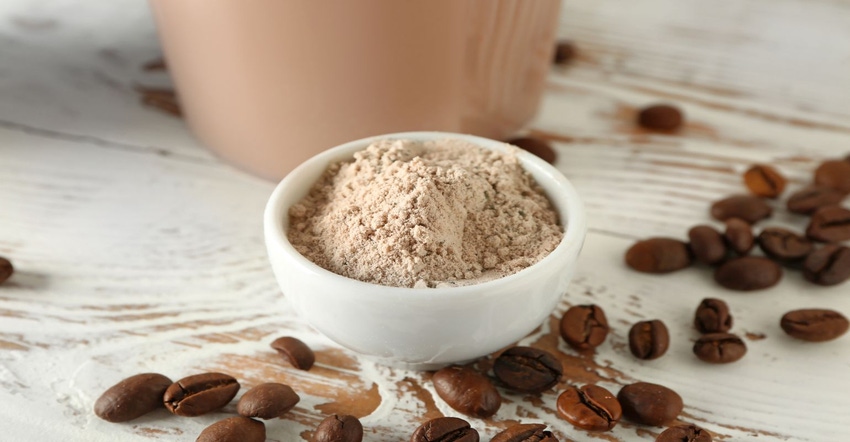Protein-fortified coffee beverages
The “proffee” (protein coffee) craze represents fresh opportunities in ready-to-drink (RTD) and ready-to-mix (RTM) beverage applications.

A new breakfast trend has consumers trading in their morning coffee and scrambled eggs for protein-fortified caffeinated beverages. Having racked up millions of views on TikTok, the “proffee” (protein coffee) craze has the attention of beverage brands. As the trend takes off, opportunities abound for ready-to-drink (RTD) and ready-to-mix (RTM) applications.
Like many food trends, protein in coffee started with consumers experimenting at home with the ingredients they had on hand. The concept is simple: Blend coffee with a protein powder or high-protein beverage. Then, consumers add their favorite flavorings, creamers and sweeteners. Some of the most popular combinations consist of espresso shots or cold-brewed coffee blended with RTD protein drinks or plant-based milks and topped off with creamers or whipped cream.
Many social media proffee enthusiasts also mix in cocoa powder, low-calorie flavored syrups like French vanilla or pumpkin spice, and non-sugar sweeteners like stevia. Others prefer to blend their protein coffee with ice and a banana to make a high-octane smoothie. Each possibility represents a point of entry for beverage innovations that appeal to the reasons consumers are drinking protein coffee in the first place.
Morning convenience on the go
According to a survey from the National Retail Federation, over half of consumers said that a majority of their purchases are influenced by convenience. So it’s no surprise that protein coffee is catching on for the quick energy it provides in the morning. In one drink, a consumer gets a morning dose of caffeine plus a serving of lean protein to support energy and help with satiety.
However, it would be a mistake to market protein powder and coffee as a meal replacement. Nutritionists recommend that the first meal of the day contain complex carbohydrates and a small amount of fat. Furthermore, nutrition experts recommend that individuals eat a breakfast with low glycemic foods that won’t create a spike in blood sugar. Therefore, formulators should be mindful of how protein coffee can complement a complete breakfast and avoid giving consumers a sugar crash before lunchtime.
Protein coffee in quick-to-prepare RTM powders and grab-and-go RTD applications offer a more nutritious alternative to conventional instant coffees and bottled cappuccinos. Brands looking to position these applications as part of a healthy breakfast may wish to consider complementing formulations with other macronutrients as well as fiber, vitamins and essential minerals.
Functional focus
Protein coffee can be about more than just a dose of caffeinated protein. The format is an excellent vehicle for other functional ingredients. Brands looking to expand into protein coffee should not overlook the potential synergies with adaptogens and nootropics. As the energy drink category becomes more populated with formulations featuring these ingredients, protein coffee can follow suit by offering up similar applications that aid focus and cognition.
Editor’s note: This article was excerpted from a longer feature in the “Steeped in innovation: Coffee and tea go beyond energy” digital magazine. Click the link to access them both.
Jon Copeland is a research strategist at MarketPlace , a strategic partner to food and beverage, pet and animal, and health and wellness brands and businesses.
About the Author(s)
You May Also Like






